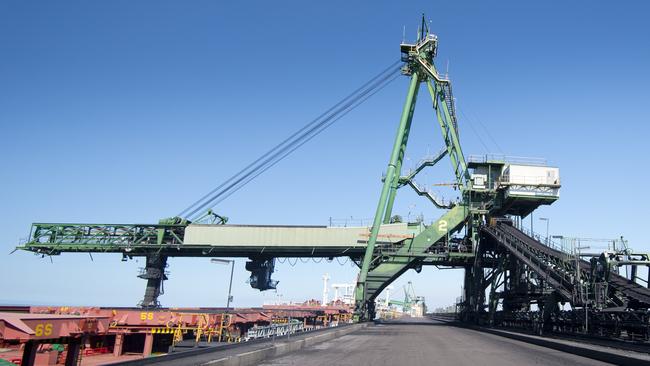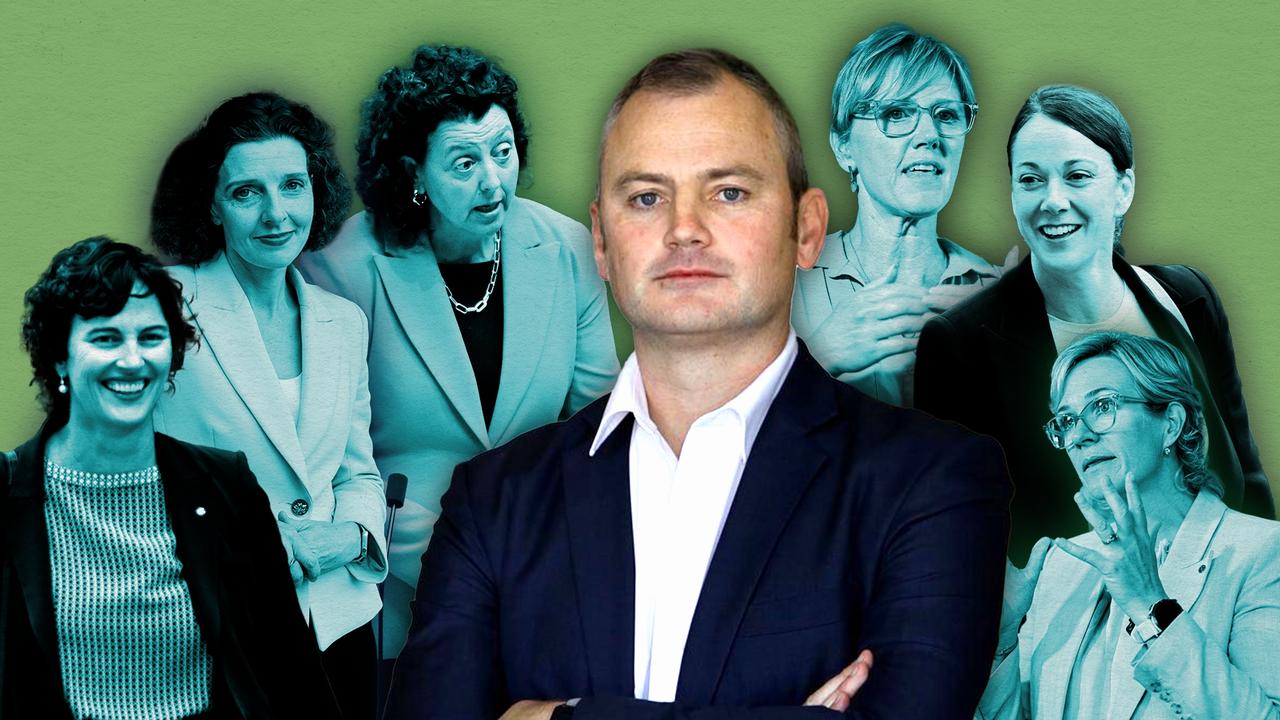Climate talks to put pressure on coal exports
Coal exports will be hit by new restrictions in the next phase of climate change negotiations, experts say, as Scott Morrison faces increasing pressure to commit Australia to deeper carbon cuts.

The nation’s second-largest export, coal, will be hit by new restrictions in the next phase of climate change negotiations, experts say, as Scott Morrison faces increasing pressure to commit Australia to deeper cuts in carbon dioxide emissions at this week’s 40-nation climate summit hosted by US President Joe Biden.
Former staffers for Barack Obama said Australia’s emissions reduction targets lacked ambition and said restrictions on fossil fuel exports would likely feature in the next phase of international climate negotiations to take place later this year in Glasgow.
The US is expected to announce a new 50 per cent emission reduction target later this week to signal the new Democrat administration determination to reach net zero emissions by 2050 and put pressure on the rest of the world to implement more ambitious emissions reduction targets.
Nathan Hultman, a senior fellow at the Brookings Institution who worked in former president Obama’s climate policy unit, said the summit was “the moment when US and Biden very clearly re-enter the global leadership circle on climate”.
Lachlan Carey, a former Canberra Treasury official now climate change expert at the Centre for Strategic and International Studies in Washington DC, said Australia would “absolutely come under pressure” to increase its commitment.
“The Biden campaign said it would call out laggards, and this is a group — Turkey, Brazil, Saudi Arabia — that Australia shouldn’t want to be part of,” he said.
The Prime Minister announced $540m in new spending on hydrogen and carbon capture technology on Wednesday, but stopped short of exceeding a promise to cut emissions by 28 per cent from 2005 levels by 2030 the government made at the climate summit in Paris in 2015.
“That’s not going to cut it, and it’s a shame,” Mr Carey said.
President Biden in late March announced a two-day virtual summit to “galvanise efforts by the major economies to tackle the climate crisis (and) catalyse efforts that keep that 1.5-degree goal within reach”.
Mr Hultman, also a professor at the University of Maryland, said “assessment we’ve done show Australia lagging behind in terms of ambition … all countries have more they can and should do. Every country is on the hook to do more.”
Alice Hill, a senior fellow for environmental policy at the Council for Foreign Relations, said Australia would “feel more pressure from a variety of countries to increase its ambition”.
Ms Hill said curbing fossil fuel exports would feature in the next phase of climate negotiations.
Under internationally agreed carbon accounting rules, fossil fuel exports are excluded from nations’ carbon dioxide emissions. “Too many emissions are falling through the cracks,” Ms Hill said.
Professor Hultman said nations should be aiming to phase out coal “within the next 10 to 15 years”. “Coal exports are part of the climate problem and need to be part of the conversation,” he added.
The future of coal in the national electricity grid has been a political lightning rod within the government, which has promised a new gas power station in the Hunter Valley as part of its “energy road map”.
Benny Peiser of the Global Warming Policy Foundation said significant emissions increases by China and India meant whatever the US, Australia and Europe did was “completely futile”.
“The Chinese have another 10 years of increasing coal capacity, and never mind India, which is about where China was 20 years ago,” he told The Australian.
“The low-hanging fruit in developed countries of cutting emissions has been done, here in Europe the conversation has turned to governments wanting people to get rid of cars, gas heaters and eating meat,” Dr Peiser said.




To join the conversation, please log in. Don't have an account? Register
Join the conversation, you are commenting as Logout